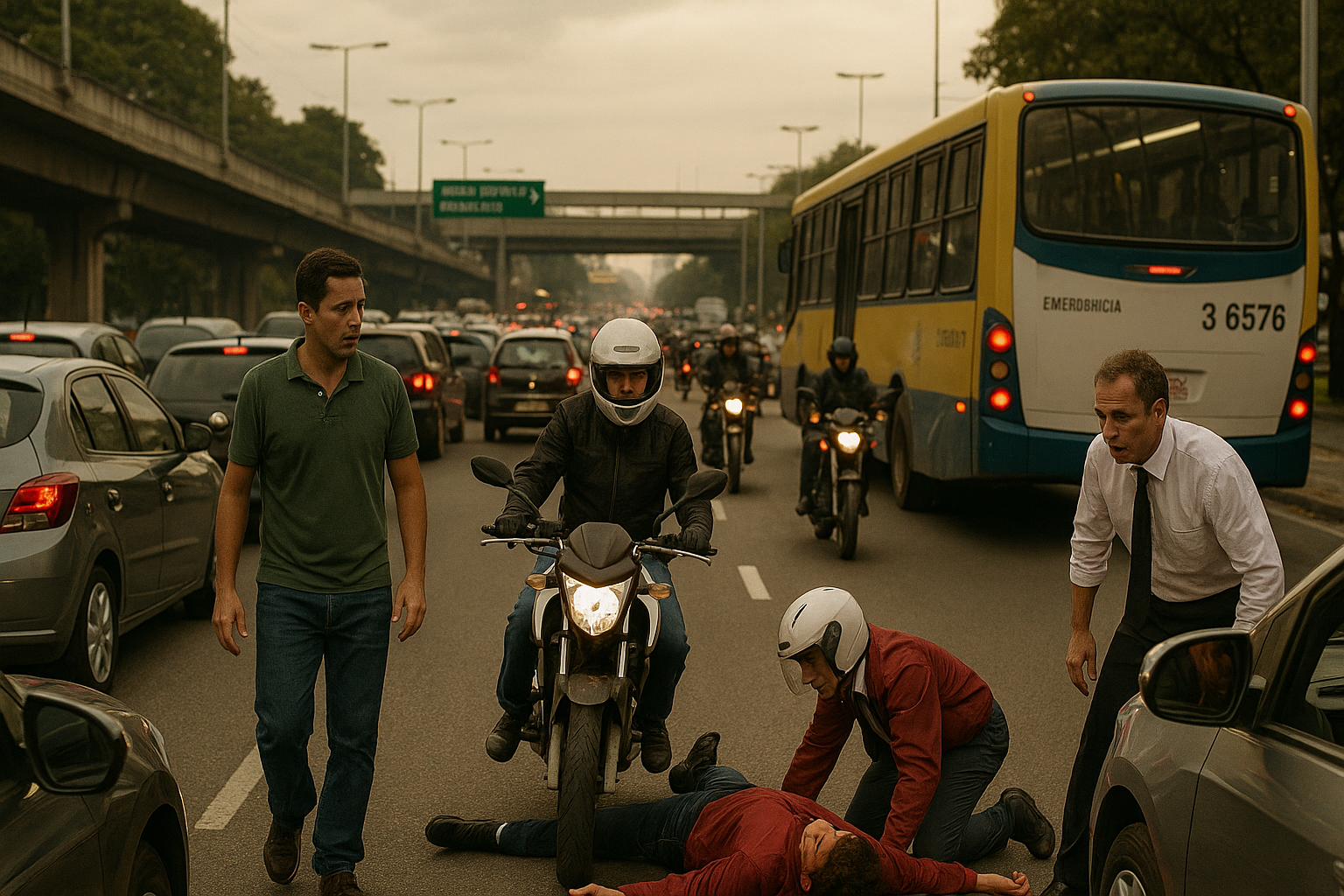Brazil’s Road Traffic Epidemic: A Preventable Crisis Demanding Urgent Action
The report “The Burden of Road Traffic Injuries in Brazil: Evidence for Policy” by IHME and Brazilian partners exposes road crashes as a major yet preventable public health crisis, disproportionately affecting young men and low-income groups, especially motorcyclists. It highlights the immense economic, social, and health costs while urging coordinated policies, stronger enforcement, and safer infrastructure to reduce Brazil’s silent epidemic of traffic injuries.

A report prepared by the Institute for Health Metrics and Evaluation (IHME) alongside Brazilian research partners unveils one of the country’s most urgent yet underappreciated public health challenges. Far from being isolated accidents, road crashes are revealed as systemic and preventable tragedies that ripple across society. Every year, tens of thousands of Brazilians lose their lives on highways and city streets, while hundreds of thousands more are left with lasting injuries. Young men aged between 15 and 29 dominate the casualty figures, transforming this crisis into a generational loss. The country’s bustling transport arteries, vital for economic activity, have simultaneously become corridors of tragedy, raising alarm among researchers and health experts alike.
Economic Toll Beyond the Crash Scene
The report makes clear that the consequences of traffic injuries extend far beyond the immediate aftermath. The Brazilian health system, already stretched thin, is inundated by trauma cases that demand intensive care, complex surgeries, and long rehabilitation periods. Each severe injury consumes scarce hospital beds and specialized staff, delaying treatment for other medical conditions. The economic ripple effects are staggering. Billions of reais are lost annually in medical expenses, disability, and reduced productivity. Families, particularly from lower-income backgrounds, shoulder the heaviest burden when a breadwinner is incapacitated or killed. For households already living on fragile incomes, a crash can push them deeper into poverty. The growth of motorcycle delivery services illustrates this intersection vividly: young riders, often working under precarious contracts, are disproportionately affected, exposing how labor vulnerabilities intertwine with unsafe roads to compound risk.
Who Is Most at Risk?
The analysis highlights stark patterns of vulnerability. Motorcyclists have emerged as the group most exposed to fatal and debilitating injuries, especially in midsized cities and peripheral neighborhoods where infrastructure is weaker and law enforcement is patchy. Pedestrians, particularly children and the elderly, face grave dangers on avenues where crossings are unsafe and vehicles dominate over human movement. The risks are not only structural but behavioral. Alcohol consumption, speeding, and inconsistent use of helmets and seatbelts consistently appear as leading causes of injury severity and death. The lack of well-designed sidewalks, cycle paths, and public transport alternatives pushes people into high-risk modes of mobility. Poorly maintained roads, coupled with vehicles traveling at unsafe speeds, further amplify the hazards. The crisis is not random; it is shaped by the physical environment, behavior patterns, and systemic neglect.
Policy Gaps and Untapped Opportunities
Despite Brazil’s commitment to the United Nations’ Decade of Action for Road Safety, progress has been uneven. Responsibilities are fragmented across federal, state, and municipal levels, creating gaps in coordination and accountability. Campaigns against drunk driving or speeding are often launched with vigor but fade without sustained enforcement. Underfunding of road safety initiatives and limited political prioritization further stall advances. Yet, as the report emphasizes, opportunities abound. International evidence demonstrates that measures such as lowering speed limits, rigorously enforcing helmet and seatbelt laws, improving road design, and strengthening emergency medical response can significantly reduce fatalities. Tailored education campaigns for high-risk groups, particularly motorbike couriers and young drivers, could complement regulatory measures if applied consistently. The tools exist; what is required is the political will and coordination to implement them effectively.
A Call for Integrated Action
Above all, the report reframes traffic injuries as a pressing public health and development issue, not merely a transportation problem. Like epidemics, the scale of road deaths and injuries demands a coordinated, multisectoral response. Road safety must be integrated into Brazil’s health agenda, with transport and urban planning aligned to prioritize people’s safety over speed and convenience. Equity is central: the most disadvantaged communities, where unsafe roads intersect with precarious labor markets, must be at the forefront of interventions. The evidence underscores that road crashes are preventable. They are outcomes of choices in lawmaking, infrastructure design, and enforcement. Without decisive action, Brazil risks losing more of its youth, straining its health system, and eroding its economic potential. With evidence-based interventions, however, the country could save thousands of lives annually, strengthen families and communities, and create safer urban environments.
The report leaves policymakers with a stark choice. To continue on the current path is to accept road traffic injuries as an unavoidable fact of Brazilian life, a silent epidemic that drains resources and devastates families. Alternatively, Brazil can commit to a new strategy, one that places safety at the core of mobility policy, that enforces laws with consistency, and that invests in infrastructure designed for people rather than just vehicles. Roads, after all, should connect Brazilians to opportunity, not tragedy.
- FIRST PUBLISHED IN:
- Devdiscourse
ALSO READ
Brazil's Supreme Court Nears Verdict on Bolsonaro's Criminal Conspiracy Charges
C-CAMP Partners with Nagaland to Revolutionize Public Health
Historic Win: Bolivia's Penalty Triumph Over Brazil Secures Playoff Spot
Bolsonaro's Downfall: High Stakes at Brazil's Supreme Court
Bolivia Stuns Brazil: South American World Cup Qualifying Drama










